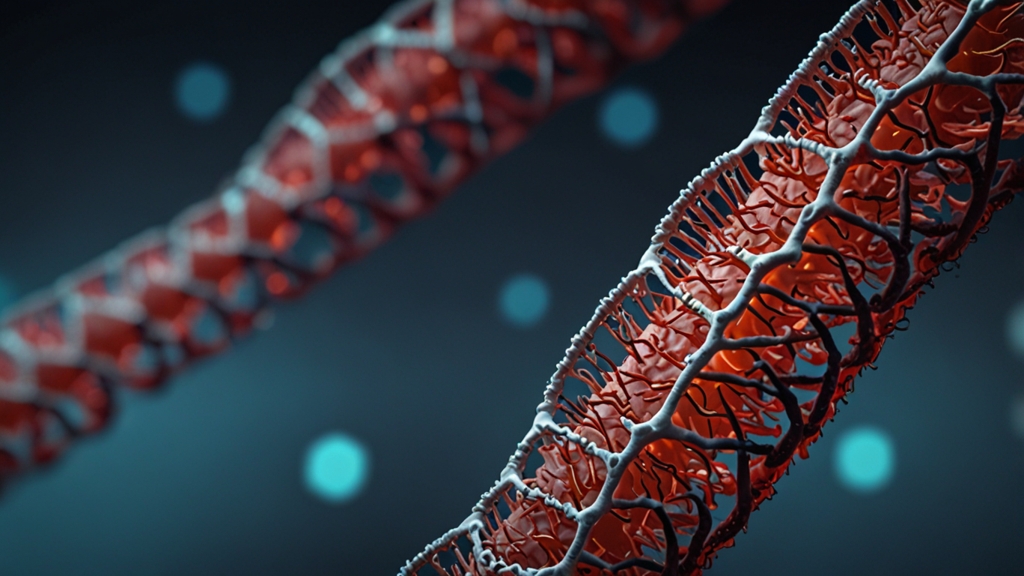What Ancient Civilizations Knew About the Human Body
The ancient world was a treasure trove of knowledge about the human body, much of which laid the groundwork for modern medicine and anatomy. Despite the lack of advanced technology, several ancient civilizations exhibited an impressive understanding of human physiology and medical practices.
Egyptians: Pioneers of Anatomy and Surgery
Ancient Egypt is renowned for its extensive contributions to medical knowledge. The Edwin Smith Papyrus, dating back to around 1600 BCE, is one of the oldest medical texts in existence. It details various surgical operations and treatments, showcasing the Egyptians' advanced understanding of anatomy. They identified organs such as the heart, lungs, liver, and even blood vessels, with some procedures demonstrating a rudimentary grasp of antiseptic techniques.
"The ancient Egyptians had a sophisticated system for managing different medical conditions, including trauma care, which was well ahead of its time. Their surgical practices were extensive and included the use of sutures for wound closure."
Greeks: The Intellectual Forefront
The Greeks made significant strides in the study of the human body, with prominent figures such as Hippocrates and Galen laying the foundational principles of modern medicine. Hippocrates, often referred to as the "Father of Medicine," introduced the concept of the four humors—blood, phlegm, black bile, and yellow bile—which he believed dictated health and disease.
Galen, a physician in the Roman Empire, expanded upon Hippocratic theories and conducted anatomical studies, primarily on animals, due to the prohibition against human dissection. His work in understanding the circulatory system and nervous system influenced Western medicine for over a millennium.
"Galen's extensive writings on anatomy and physiology remained authoritative for centuries, underscoring the longevity of Greek contributions to medical science."
Chinese: The Balance of Yin and Yang
Ancient Chinese medicine was deeply rooted in the philosophy of balance and harmony. The concepts of Yin and Yang, along with the Five Elements, formed the basis for understanding the human body and its functions. Chinese medical texts, such as the "Huangdi Neijing" or "The Yellow Emperor's Inner Canon," described the complexities of the meridian system and the flow of Qi (vital energy) through the body.
Treatments like acupuncture and herbal medicine were developed to restore balance within the body. The Chinese were adept at diagnosing ailments by observing external symptoms and using various techniques to correct internal imbalances. Their holistic approach emphasized the interconnectedness of the body's systems and the importance of maintaining equilibrium.
Indians: Ayurveda and Surgical Brilliance
Ayurveda, the traditional system of medicine in India, has its roots in texts like the "Sushruta Samhita" and the "Charaka Samhita," dating back to around 600 BCE. These ancient texts provide extensive information on surgeries, including cataract removal, plastic surgery, and even Cesarean sections. Sushruta, known as the "Father of Surgery," described numerous surgical instruments and procedures, showcasing advanced medical knowledge for his time.
Ayurveda emphasized a holistic approach to health, incorporating diet, lifestyle, and natural remedies to maintain balance within the body. The knowledge of doshas—Vata, Pitta, and Kapha—highlighted the understanding of individual constitution and its impact on health and disease management.
"The surgical techniques and Ayurvedic principles of ancient India reveal a profound understanding of the human body and underline the importance of maintaining balance and harmony for overall well-being."
Conclusion: A Legacy of Wisdom
The insights and practices of ancient civilizations have significantly shaped contemporary medical knowledge. Their advancements in anatomy, surgery, and holistic health highlight a sophisticated grasp of the human body despite the technological constraints of their time. As we look back, it's clear that these early societies laid the groundwork for many principles that continue to underpin modern medicine.
Understanding what ancient civilizations knew about the human body not only enriches our knowledge of medical history but also deepens our appreciation for the enduring quest for health and healing that transcends time and culture.






